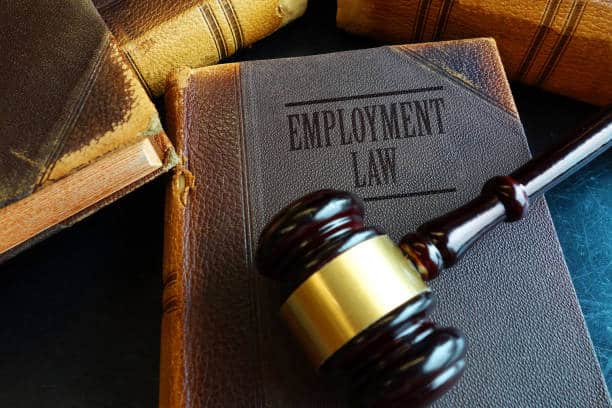One of the most significant aspects of this legal framework is adverse action protection a safeguard designed to prevent discriminatory or retaliatory behavior in the workplace. At Stevens & Associates, our expertise in employment law ensures that businesses and employees are well-equipped to handle such issues effectively.
In this article, we’ll explore the concept of adverse action, its implications, and how both employers and employees can protect their rights under Australian law.
What Is Adverse Action in Employment Law?
Adverse action refers to any action taken by an employer, employee, or organization that negatively impacts another party due to prohibited reasons. The Fair Work Act 2009 outlines these protections, ensuring fairness and equality in the workplace.
Examples of adverse action include:
- For Employers: Dismissing an employee, altering their position to their detriment, or discriminating against them.
- For Employees: Engaging in conduct that adversely affects the employer’s business or refusing to carry out lawful instructions.
- For Organizations: Denying membership or expelling an individual from a trade union.
These actions become unlawful if they are motivated by factors such as an employee’s race, sex, age, disability, political opinion, or involvement in industrial activities.
The Legal Framework Protecting Against Adverse Action
The Fair Work Act 2009 serves as the cornerstone of adverse action protection in Australia. It prohibits actions taken for reasons that contravene workplace rights or involve discrimination. Key provisions include:
- General Protections:
These safeguard employees, contractors, and prospective employees from adverse actions linked to:
- Workplace rights (e.g., making a complaint or inquiry about employment).
- Industrial activities (e.g., union membership).
- Discrimination based on personal attributes.
- Onus of Proof:
Unlike many other legal claims, the burden of proof in adverse action cases lies with the employer. They must demonstrate that their actions were not motivated by prohibited reasons.
- Broad Coverage:
Adverse action protections extend beyond traditional employment relationships, covering independent contractors and casual workers.
Examples of Adverse Action in Practice
Understanding how adverse action occurs in real-world scenarios is crucial for recognizing and addressing it.
Scenario 1: Dismissal After a Workplace Complaint
An employee files a complaint about unsafe working conditions. Shortly after, they are dismissed for “poor performance.” If the dismissal was influenced by the complaint, this could constitute adverse action.
Scenario 2: Denial of Promotion Due to Personal Attributes
A qualified employee is overlooked for promotion due to their gender or cultural background. Such discrimination violates adverse action protections.
Scenario 3: Retaliation Against Union Activity
An employee participating in lawful union activities faces reduced hours or unfavorable treatment. This retaliatory action is unlawful under the Fair Work Act.
How Employers Can Avoid Adverse Action Claims
Employers have a legal and ethical responsibility to foster a fair and inclusive workplace. To minimize the risk of adverse action claims, consider the following strategies:
- Document Decisions Thoroughly
Maintain detailed records of employment decisions, including performance reviews, disciplinary actions, and the rationale behind promotions or terminations.
- Provide Clear Policies and Training
Ensure all employees understand workplace rights and anti-discrimination laws. Regular training sessions can help reinforce these principles.
- Seek Legal Advice
Consulting with employment law experts, such as Stevens & Associates, can help employers navigate complex situations and ensure compliance with the law.
- Conduct Fair Investigations
If adverse action allegations arise, conduct a thorough and impartial investigation to address the issue promptly.
What Employees Should Know About Their Rights
Employees who believe they have been subjected to adverse action should take the following steps:
- Gather Evidence
Document incidents, including emails, performance reviews, and witness statements, to support your claim.
- Seek Legal Advice
Consulting with an employment law specialist can clarify your rights and the strength of your case.
- Lodge a Claim
Employees can file a general protections claim with the Fair Work Commission within 21 days of the alleged adverse action.
- Engage in Mediation
Many disputes can be resolved through mediation, where both parties work toward a mutually acceptable outcome.
The Role of Stevens & Associates in Adverse Action Cases
At Stevens & Associates, we understand the complexities of adverse action claims and the stress they can cause for all parties involved. Our team of experienced employment lawyers provides comprehensive support tailored to your unique circumstances.
For Employers:
- Assisting with policy development and compliance.
- Representing employers in disputes and mediations.
- Providing proactive advice to prevent claims.
For Employees:
- Evaluating the merits of your case.
- Representing you in negotiations or legal proceedings.
- Advocating for fair outcomes and compensation.
Key Considerations in Adverse Action Disputes
Adverse action cases can be complex and emotionally charged. Here are some key considerations:
- Timeliness:
Claims must be lodged promptly, often within strict time limits.
- Evidence:
Strong documentation and credible witnesses can significantly impact the outcome.
- Resolution Options:
Many disputes are resolved through mediation or conciliation, avoiding lengthy court battles.
- Reputational Impact:
Both employers and employees should consider the potential reputational consequences of adverse action disputes.
Conclusion
Adverse action protection is a vital component of Australia’s employment law, promoting fairness and equality in the workplace. Understanding these protections is essential whether you’re an employer seeking to comply with legal obligations or an employee defending your rights.
At Stevens & Associates we are committed to providing expert guidance and representation in adverse action cases. Contact us today to learn how we can assist you in navigating these complex issues.
Copyright © 2025 California Business Journal. All Rights Reserved.
For California Business Journal Disclaimers, go to https://calbizjournal.com/terms-conditions/.




